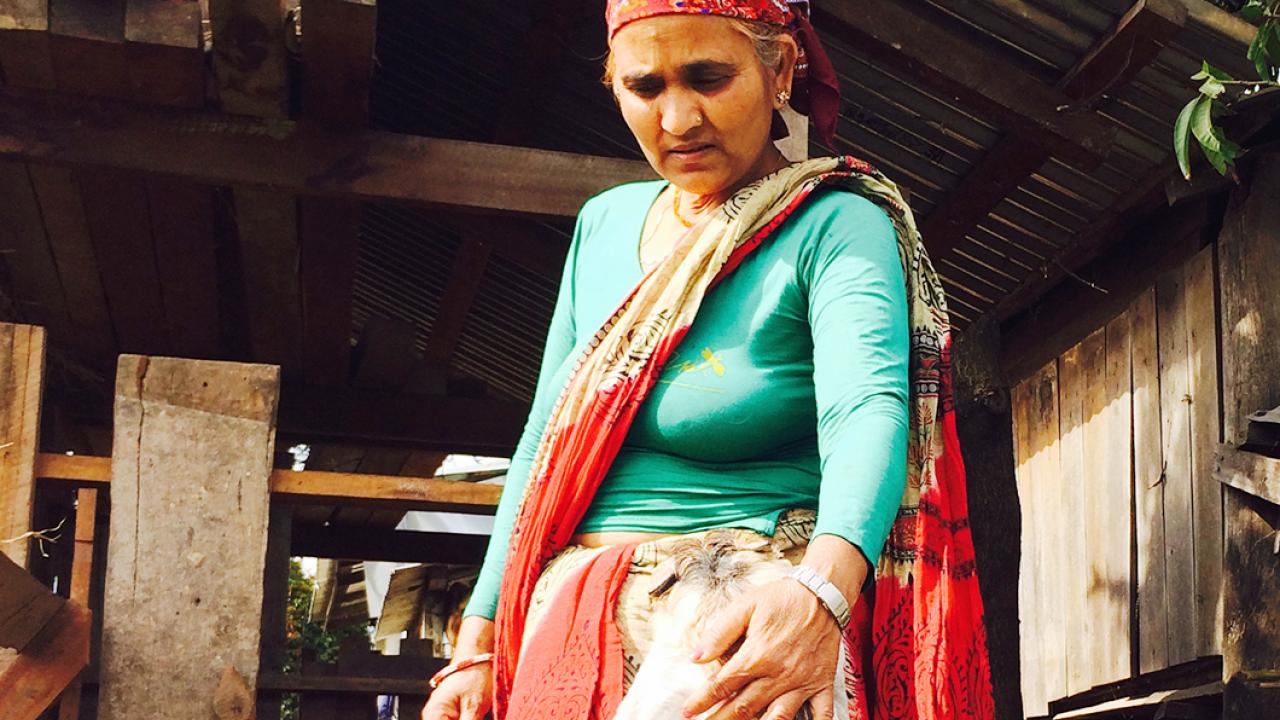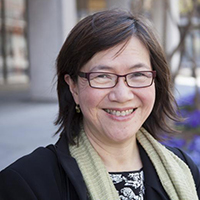
Still Holding up Half the Sky: Development Research by Women, for Women
About International Women's Day
International Women's Day, which takes place each year on March 8th, is a global day celebrating the social, economic, cultural and political achievements of women. The day also marks a call to action for accelerating gender parity.
Rural families in the developing world face drought, floods, pests and pandemics. Yet, women’s lives are unequally altered by these shocks. Women are the first to give up food for their children and first to divest their own assets for the good of the family. Despite this, it is a woman’s ability to help their families bounce back, keep children fed and in school, and build up their own resilience that counteracts the intergenerational transfer of poverty.
For this International Women’s Day on March 8th, we highlight some of the critical innovations the MRR Innovation Lab is supporting to help women in vulnerable rural communities mitigate the risks they face. We asked several of our female researchers, all trailblazers in the field of development economics, to discuss their gender-focused research projects as well as their own experiences as women working in this field.

Ana Maria Ibáñez, a professor at the School of Economics in Universidad de los Andes in Colombia currently on leave to serve as economics principal advisor at the Interamerican Development Bank, is a member of the MRR Innovation Lab advisory board. Most of her research focuses on the economic costs of crime and conflict as well as the causes and consequences of forced displacement.
How have you seen your field change for women researchers?
It is great and very important to bring this focus on women. Women's position in my field has improved, but too slowly and too little. Women still need to work twice as much and write papers twice as good to be equally successful to men. Although efforts to improve the position of women in the field have been implemented, cultural change is slow and sometimes a burden that dampens these efforts.

Sarah Janzen, an assistant professor of economics at the University of Illinois, is currently working on two MRR Innovation Lab projects. Here Sarah gives an update on gender-focused evaluation of a Heifer International intervention in Nepal.
What specific challenges for women does your project address?
Women in rural Nepal often have limited control over income or productive assets, and lack the knowledge and skills to become successful entrepreneurs. Male family members are often migrants, so family obligations and limited mobility also create barriers to getting training when a woman wants it.
How does your project create new opportunities for women, and why is it important?
Our original BASIS-funded research project in Nepal set out to provide women with productive assets and training, with the goal of developing women into successful entrepreneurs, providing a sustainable pathway out of poverty. The project was implemented by Heifer International, and led to multiple subsequent market-level innovations in the livestock value chain.
In one of these follow-up projects, funded by the Feed the Future Innovation Lab for Livestock Systems at the at the University of Florida, we’re training rural Nepali women to become community animal-health workers. Once certified, these women will play an important role in the livestock value chain, supplying inputs and providing technical advice to smallholder livestock growers.
Due to family responsibilities, women are typically unable to participate in the training program, which means critical inputs are often not available in the community. To address this issue, we partnered with the government of Nepal to develop an online training platform that improves access to training - thereby creating opportunities where they previously didn’t exist.
The initial results are encouraging. Women are more likely to enroll when the in-person training requirements are reduced. We’re still unpacking the impact results, but we think this will be important both for the women who are trained, and for other women in the community who will now have better access to inputs, enabling more productive women-led livestock enterprises.
How have you seen your field change for women researchers?
In the last several years, economists have used their own tools—for example, causally identifying bias in the publication process—to demonstrate some of the barriers that women researchers face. Acknowledgement of these barriers has recently spurred conversations about how things can and should change. I expect to see more changes in the years ahead as the profession decides how to address these issues.
Working moms need flexibility. When I have a baby this month, I’ll be able to take on alternative responsibilities at work and extend my tenure clock if I choose to. These kinds of policies—which didn’t exist for some of my senior women colleagues—acknowledge some of the practical barriers faced by a majority of women in academia. In doing so, they improve the probability that women are able to continue making a contribution through their research.
I’m grateful to have had outstanding research collaborators and a very supportive partner at home who recognize these challenges, and have in-turn supported me during seasons when life is particularly hard for working moms.

Mercy Kamau, a senior research fellow at Tegemeo Institute of Agricultural Policy and Development, Egerton University, in Kenya, is working on a new project that is part of our recently launched ALL IN research initiative. This project investigates barriers that keep farmers, particularly women and other vulnerable groups, from adopting climate adaptation strategies that reduce their exposure to climate-related risks and testing how accurate and timely agro-weather and market information can empower farmers to make decisions that are likely to lead to enhanced productivity, reduced losses and greater returns from farming.
What specific challenges for women does your study project address?
Women farmers are less likely receive information, particularly that which is generated outside their locale/villages. Specifically, they are less likely to attend meetings called by leaders or development agencies or farmer group meetings because they are also less likely to receive information about the date and place and relevance of the meeting to her activities. Women farmers are also less likely to attend trainings due to, among other reasons, a lack fare to travel to venues for such meetings. Women farmers are also less likely to be literate, hence informational brochures and leaflets are of little use.
This current intervention seeks to counter these obstacles by delivering information directly into the hands of farmers via basic phone, which is an accessible and important communication channel for rural folk, including women. Information channeled through cell phones, as opposed to conventional delivery channels, is likely to reach the woman because it is relayed to her directly, remains in her phone and is available for reference at her convenience.
Our research assesses whether digital delivery of market and agro-weather advisories via the basic phone enhances women’s access to and use of information and the relevance of localized information sent to them.
How does your project create new opportunities for women and why is it important?
It has been difficult to reach women farmers in Sub-Saharan Africa, so this study seeks to establish whether women farmers can benefit from digital delivery channels and at what cost. Whilst the basic cell phone is normally used by rural women for social information, it is rarely used to access technical information, especially for accessing series or sequential information such as agro-weather information.
With this intervention we are studying whether providing timely market and agro-weather information through interactive channels has potential to include women in the transformation of subsistence farming into knowledge driven and interactive agriculture. Our study provides evidence and learning which will benefit women when incorporated in subsequent phases of the government program, and other efforts that seek to reach and benefit smallholder women farmers.
How have you seen your field change for women researchers?
The number of researchers with a background in quantitative methods (agricultural economics and related fields) in Kenya and the region has grown tremendously over the last two decades.
There are, however, only a small number of women researchers who venture into this area of quantitative economic inquiry or rigorous impact evaluations in the agriculture sector. This limits their potential influence over the design of development programs, and ultimately their influence on the outcomes of such development programs/projects.
From experience, capacity is developed from undertaking impact evaluations, especially when playing a leading role in such studies. Governments in Sub-Saharan Africa and development partners still have an important role to play in ensuring that there is sustained demand and resources for rigorous impact evaluations, that capacities for them are developed in the region and that women researchers are not left behind.

Agnes Quisumbing, senior research fellow at the International Food Policy Research Institute (IFPRI), is working in Bangladesh to evaluate whether the improvements generated by a three-year program to promote agricultural diversity, increase income, improve nutrition and empower women were sustained after a devastating cyclone.
What specific challenges for women does this particular project address?
The project attempts to address women’s relative lack of mechanisms to protect their assets in the face of negative shocks. Our previous work in Bangladesh that this follow-up research is building upon, showed that women’s assets tend to be the first to be disposed of when there were illness shocks.
We had originally planned to do a follow-up survey of a gender- and nutrition-sensitive agricultural project, which had an explicit gender sensitization component, and which had documented positive effects on women’s empowerment and gender equality. We wanted to see whether women in the project were better able to protect their assets after Cyclone Fani compared to those in the control group.
Well, a huge health shock—COVID-19—happened, and we had to postpone field work. We have all read about the impacts on women owing to the pandemic. When we are finally able to return to the field, we want to see whether the empowering effects of the original project were sustained. We will be able to ask the very important question - Were women in the project better equipped to cope with COVID-19?
How does your project create new opportunities for women, and why is this important?
If projects that aim to empower women also help to enable them to protect their assets during or after shocks, or to better cope with shocks, this has many implications for their lives and livelihoods. The knowledge that one can hold on to an asset that one worked so hard to buy—that feeling of security—who knows what it can do for a woman’s self-esteem, her hope for the future, her aspirations?
How have you seen your field change for women researchers?
Economics is not well known to be very friendly to women researchers—gender stereotypes die hard, and there are still fewer women in the higher ranks of the profession. Agricultural economics tends to be male-dominated as well.
However, development economics, and in particular research on gender and household behavior, is a field that has attracted many women and men who are interested in studying gender partly because of their own commitment to gender equality.
So maybe because of self-selection, or partly because mentors in this area often share the same views, this particular area of research has been quite attractive to early-career women. I am very inspired by the young women who join IFPRI as research assistants and associate research fellows. It has been my privilege to mentor them as they rise.
